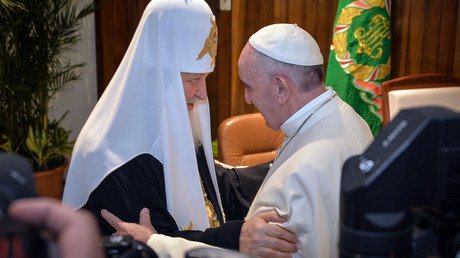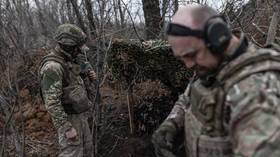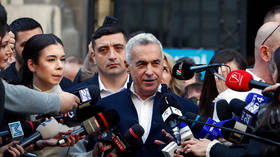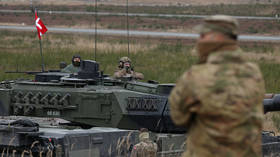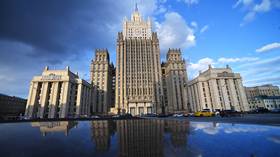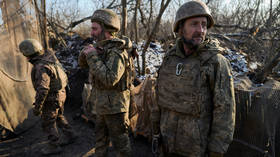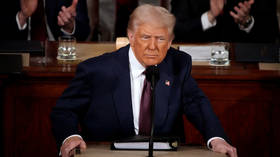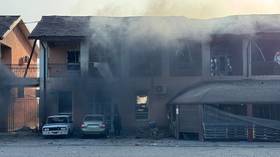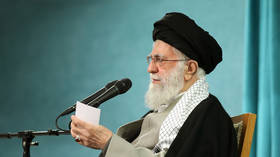Pope, Patriarch meeting sends ‘message that world is changing – and there’s hope’
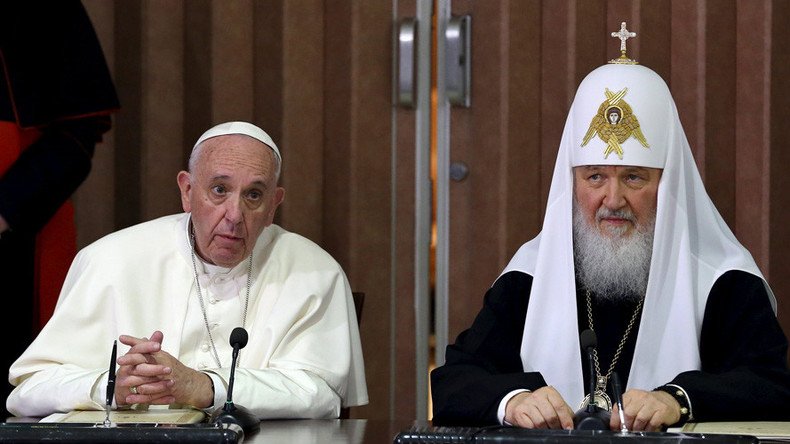
Could the meeting between the Eastern and Western branches of Christianity signify “East meets West” politically? How much danger do Christian minorities face in the Middle East, and can the Orthodox and Catholic churches help to stop the violence?
After a historic meeting in Cuba, Russian Orthodox Patriarch Kirill and Roman Catholic Pope Francis on Friday signed a joint declaration on religious unity. They called for an end to persecution of Christians in the Middle East and North Africa, where “whole families, villages and cities of our brothers and sisters in Christ are being completely exterminated.”
The meeting marked the first encounter between the Pope and the Patriarch in nearly 1,000 years after the Orthodox Church split from Rome.
“If people can come together who’ve been separated for 1,000 years with hostility, even though they believe the same thing – more or less – this is a message that the world is changing, there is hope,”Sarah de Nordwall from Catholic Voices told RT.
“The first thing that all Christians know – Russian Orthodox and Baptist Catholic is the unity that carries a blessing. It is in the spiritual realm that we can really have cause for hope. John Paul II was working really hard for this meeting as well. He always said, 'The church needs to breathe with two lungs – East and West.' And when that happened – the wealth of the Churches would come together – the spiritual wealth, the prayer and fasting and the beauty that inspires us in a Russian pilgrim tradition in the Russian Orthodox Church. We’ve got to learn from that too. He also called St. Seraphim of Sarov the saint for Catholics as well... St. Seraphim said that the world could expect great things from the Russian soul. He is a Great Russian Saint who still inspires us. When these great traditions come together, something beautiful is definitely going to happen,” she said.
Rev. Dr. John Chryssavgis, theological advisor of the Greek Orthodox Archdiocese of America and Archdeacon of the Ecumenical Patriarchate, described the meeting in Cuba as “very significant.”
“It is wonderful news, it is welcome news,” he said. “It is the first time that the Russian Orthodox Patriarch is meeting with the Roman Catholic Pontiff. Not the first time that the two churches – the Russian Orthodox and Roman Catholic, have come together, but the first time in fact in the history since the Patriarchate of Moscow has been in existence, so since the 16th century. Nonetheless, a very historical moment,” he said.
The meeting comes amid an ongoing Islamic State onslaught in Iraq and Syria. Asked whether these areas and Christianity can survive the attacks by the terrorist group, Chryssavgis said:
“Our church is a church that stresses that through darkness we can still reach light; that through Golgotha we can reach the tomb of the resurrections. So we believe that [the onslaught from ISIS] can be overcome. And one way it can be overcome is precisely by dialogue. What happened between Patriarch Kirill and Pope Francis is exactly how evil is overcome; it’s exactly how violence is torn down and exactly how division is repaired. In a sense ISIS is all about “no dialogue” – it is all about isolation. And western civilization and Orthodox theology at its best is all about freedom and dialogue.”
Dr. Massimo Fraggioli, associate professor of theology at the University of St. Thomas in Minnesota, said the meeting between the leaders of the two churches was a dream came true.
“Pope Francis and Patriarch Kirill made a miracle,” he said.
The statement that they published was “very wide-ranging” and covers many topics, he said.
“But the topic of martyrdom of Christians in the Middle East and North Africa is the first one, the most relevant,” Dr Fraggioli said.
The two churches’ leaders met shortly after world powers agreed to a “cessation of hostilities” in Syria set to begin in a week’s time. The 17-member International Syria Support Group (ISSG), which met in Munich, also agreed to immediately begin to provide humanitarian aid to civilians in the war-torn country.
According to Fraggioli, the timing of the declaration signed by the Patriarch and the Pope is important.
“These two churches are very, very firm in denouncing what is happening [in Syria]. It is the first time that they share this kind of statement together,” he told RT.
The statements, views and opinions expressed in this column are solely those of the author and do not necessarily represent those of RT.
